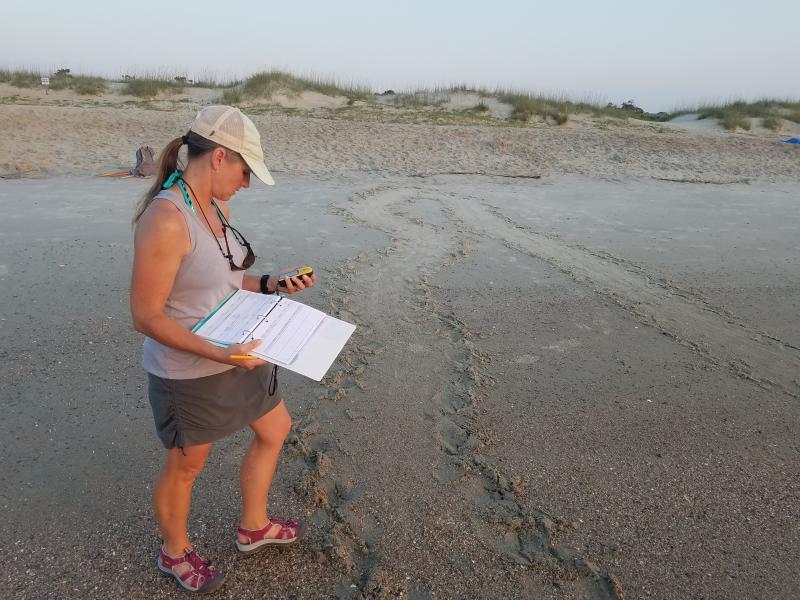
Caption
Tammy Smith records GPS data for a turtle crawl on Tybee Island in 2019. The state Department of Natural Resources tracks this data as part of their sea turtle conservation efforts. EMILY JONES / GPB NEWS
Credit: Emily Jones / GPB News

